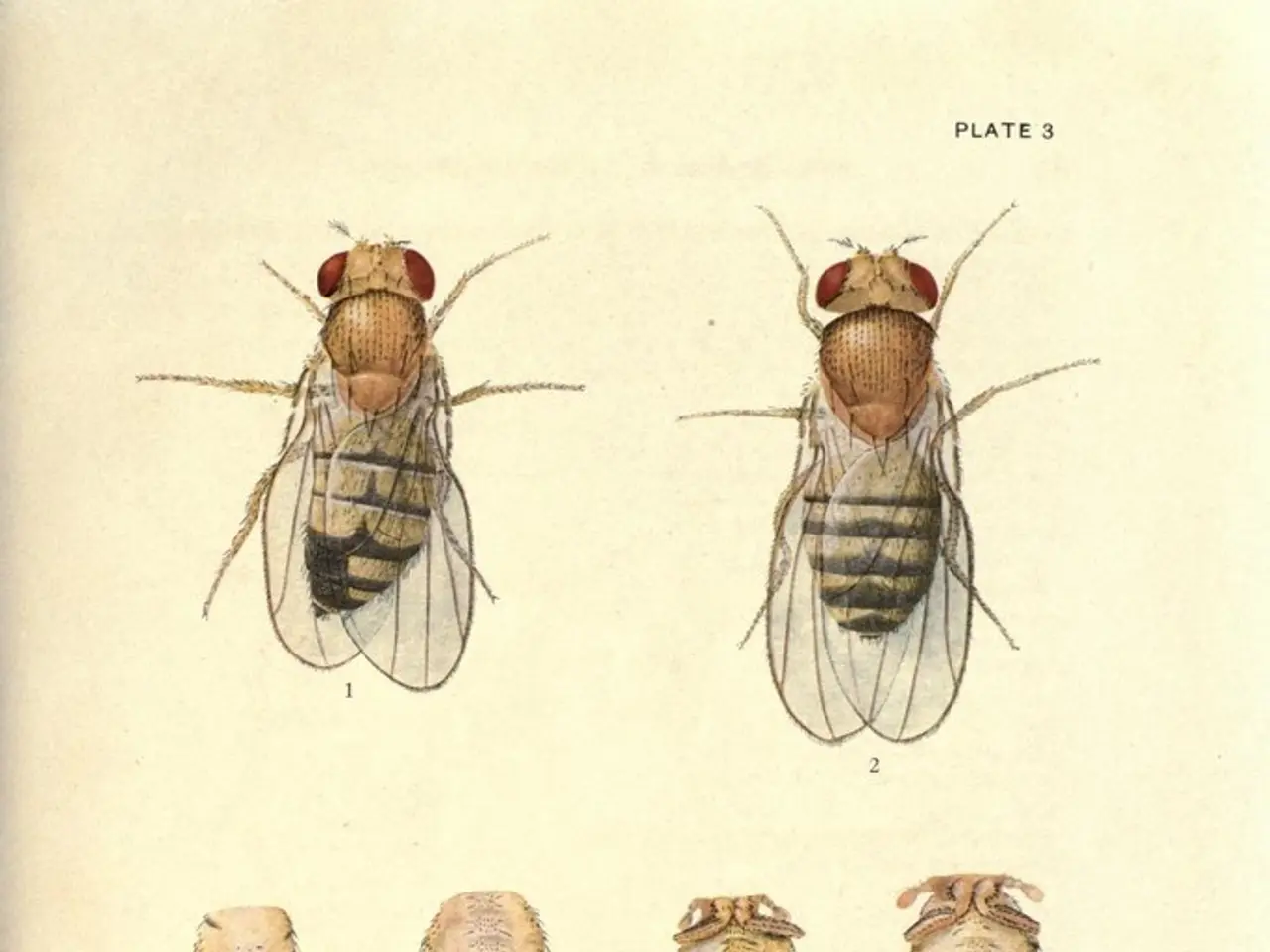Unapproved Pesticide Detected at BASF Facility in Lyon - Illegally used insecticide discovered on BASF's premises close to Lyon, authorities report
In a recent development, the banned insecticide Fastac, containing the substance alpha-cypermethrine, was discovered at BASF's Genay plant near Lyon, France. This revelation has significant implications for both BASF and France, and it underscores ongoing concerns about the export of prohibited pesticides to countries with less stringent regulations.
**Implications for France and BASF**
The discovery of Fastac, which has been banned in France since 2020 and throughout the EU since 2021, contravenes French law, specifically the 2018 Egalim law. This legislation prohibits the production, storage, and circulation of phytosanitary products containing non-approved active substances due to health, animal, or environmental risks. The law came into full effect in 2022.
The presence of Fastac, produced as recently as January 2025, indicates that BASF has been illegally manufacturing and storing this banned pesticide on French soil. This situation could potentially lead to legal sanctions and reputational damage for the company, as activists and NGOs have already accused BASF of breaking the law.
The French ministries responsible for environmental and agricultural oversight have faced criticism for not taking decisive action despite evidence and public pressure.
**Relation to Export of Banned Insecticides**
While Fastac is banned within the EU, it continues to be exported from BASF's European sites to countries outside the European Union, including Russia, Kazakhstan, Ukraine, Belarus, and India. The practice of producing banned pesticides within EU territories and exporting them abroad is illegal under EU and French regulations.
The export of these banned substances raises serious ethical and regulatory questions about the environmental and health impacts on importing countries, which might lack sufficient regulatory frameworks to manage the toxic effects of such chemicals.
In summary, the discovery of Fastac at BASF’s Lyon-area plant underscores an ongoing breach of French and EU pesticide laws by BASF. The case illustrates the problematic practice of exporting banned substances to countries with laxer controls, exposing vulnerabilities in global pesticide governance systems. This situation underscores the need for stricter enforcement of pesticide laws and increased international cooperation to ensure the safety and integrity of global pesticide trade.
References: [1] Swissinfo.ch. (2023). France accused of exporting banned pesticides. [online] Available at: https://www.swissinfo.ch/eng/france-accused-of-exporting-banned-pesticides/48025744
[2] The Guardian. (2023). BASF accused of producing banned pesticide Fastac at French plant. [online] Available at: https://www.theguardian.com/environment/2023/mar/15/basf-accused-of-producing-banned-pesticide-fastac-at-french-plant
[3] France 24. (2023). French authorities accused of inaction over banned pesticide at BASF plant. [online] Available at: https://www.france24.com/en/europe/20230315-french-authorities-accused-of-inaction-over-banned-pesticide-at-basf-plant
- The illegal production and storage of Fastac, a banned pesticide, in France raises concerns about vocational training in environmental science within the industry, as proper understanding and adherence to regulations are crucial for the protection of human health, animal welfare, and the environment.
- The export of prohibited pesticides like Fastac to countries with less stringent regulations, such as Russia, Kazakhstan, Ukraine, Belarus, and India, calls for renewed focus and investment in vocational training programs in finance to prevent the funding of such illicit activities and ensure compliance with international trade regulations.
- Given the ongoing scandal surrounding BASF's continued production of banned pesticides and the subsequent export to less regulated countries, it is essential to provide vocational training in medical-conditions to enable health professionals to address and treat the potential health issues arising from the use of such toxic chemicals, not only in France but also in importing countries.




